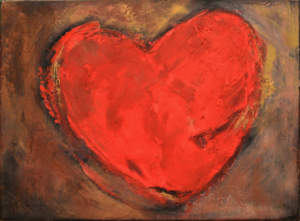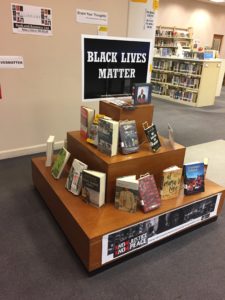On Parachutes and Literary Citizenship
Lately, I’ve been thinking about parachutes. Not related to jumping out of airplanes and free-falling until you snap your parachute open. Rather, I remember over thirty years ago and filing into my school gymnasium along with the rest of my first-grade class. We sprinted around the perimeter of the room for a warm-up, our eyes glued to the red, green, blue, and yellow parachute spread out across the center of the gym floor.
Parachute day. A gym class spent grabbing the edge of the parachute, lifting our arms when commanded, attempting to get a yarn ball to fall through the hole in the middle. Toward the end of the class, we’d together grasp our portion and hold the parachute waist high. Then on the count of three, we raised our arms over our heads, crouched down, and pulled the parachute over us, a giant balloon forming above our class.
In a way, Literary Citizenship might be akin to parachute day. For those who have never heard of the concept of Literary Citizenship, this term often describes the acts we as writers do to uplift the whole writing community—this literary society in which we are citizens.
Literary Citizenship may include, but is not limited to, actions such as subscribing to literary journals or buying books from local bookstores, attending readings or planning events to highlight other writers, writing book reviews or interviewing another writer in your newsletter or on your blog, supporting your local library or sending another writer a note of appreciation. And the list can continue to items like promoting another author’s book, writing a book endorsement, providing feedback to another writer, or giving suggestions about submission opportunities. Honestly, the potential actions may be endless and, when viewed as merely a to-do list, might fall into the category of “overwhelming.”
Literary Citizenship, however, is less of a to-do list and more of a mindset, a way of seeing ourselves as part of this writing community and writing life. For me, to participate in acts of Literary Citizenship is to acknowledge that while I might write alone, I do not exist in this writing world alone. I am a citizen along with many, many others.
When it came to parachute day, there was no way one first grader could lift her arms high in the air, crouch down, and let a giant balloon form above. No way at all. Parachute day took our whole class, each adding their particular ability and part in the pursuit of a greater goal.
Of late, I find myself accessing the generosity of this literary world to which I claim membership. I’m in the midst of gathering endorsements for my forthcoming essay collection, and I’m reliant on the help other writers can provide. When I first began this process, my stomach turned with nervousness and fear of rejection.
While those feelings haven’t necessarily dissipated, I’m working to remind myself that to need other writers is the very hallmark of being part of a literary world. I’m not holding onto a huge parachute alone. Just like I value engaging as a literary citizen, other writers do as well. We each are able to contribute different acts—not a to-do list but instead what is appropriate to and possible for who we are as writers.
I hold the edge of a parachute not with a class of first graders, but instead with a community of writers, ready to lift our arms, our pens, our words, our reviews, our time in a variety of different ways. Together we elevate the writing world and help us all sit beneath the communal power of building a robust literary society.
We give, we ask, we participate, we offer, and we live this writing life embracing and walking in the reality that we are citizens. We are citizens. And we are not alone.
To read more about the concept of Literary Citizenship (and debates about the merits of Literary Citizenship), check out these links:
“Cathy Day’s Principles on Literary Citizenship” at the Literary Citizenship blog
“5 Ways to Be a Good Literary Citizen” at the Writer’s Digest blog
“Are There Limits to Literary Citizenship?” at Jane Friedman’s blog
“That’s Not How Any of This Works” at the Brevity blog
Patrice Gopo is a 2017-2018 North Carolina Arts Council Literature Fellow. Her essay collection about race, immigration and belonging will release this summer. Please visit patricegopo.com to read more of her work and sign up for updates about her book.


